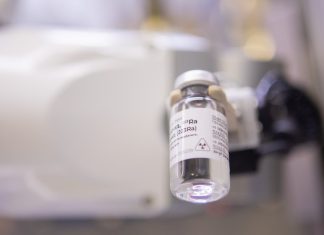During the 14th gathering of BRICS health ministers in Moscow, the focus was on crucial areas of collaboration in medicine and healthcare, as reported by the press service of the Russian Ministry of Health. A key focus of the discussion was the advancement of vaccines and testing systems aimed at tackling infectious diseases and enhancing the quality of life for citizens in the BRICS nations.
Russia has extended an invitation to its partners to collaborate on the development of vaccines for tropical fevers, including Marburg, Lassa, and West Nile viruses. The proposal includes conducting joint clinical trials and facilitating registration procedures within the territories of member countries. Russian Health Minister Mikhail Murashko emphasized that Russia has significant developments in this area and the country is ready to share its knowledge and technologies.
“There are currently significant developments on the Marburg virus, Lassa fever, West Nile fever, so I invite you to cooperate in this area, to joint clinical trials and registration in our countries. We are ready to share our knowledge and capabilities,” he said.
He noted that the World Health Organization had previously decided to remove the Russian Federation from the list of countries with a high incidence of tuberculosis. “We will be happy to offer our partners’ cooperation, including the development of a test system approved by the World Health Organization for the early diagnosis [of tuberculosis],” he said. According to him, Russian scientists are also currently developing modern vaccines against tuberculosis, including for the prevention of the disease in adults and overcoming tuberculosis resistance to antibiotics.
“In Russia, we continue to increase the coverage of preventive medical examinations, and in 2023, almost 76% of the entire population was examined, which allowed us to actually reduce the incidence rate by three times and minimize mortality rates in recent years,” the minister added.
Russian Deputy Foreign Minister Sergei Ryabkov noted that the joint efforts of the BRICS countries will improve the quality of life of the population and life expectancy through the introduction of innovations such as nuclear medicine and radiopharmaceuticals, as well as training personnel and the exchange of best practices.
“The range of issues concerns public health, including nuclear medicine. And it is this aspect that has received the greatest advancement this year thanks to the efforts of the Russian presidency, the Russian Ministry of Health, and personally the Russian Minister of Health Mikhail Murashko,” said Deputy Minister of Foreign Affairs of Russia Sergei Ryabkov.




